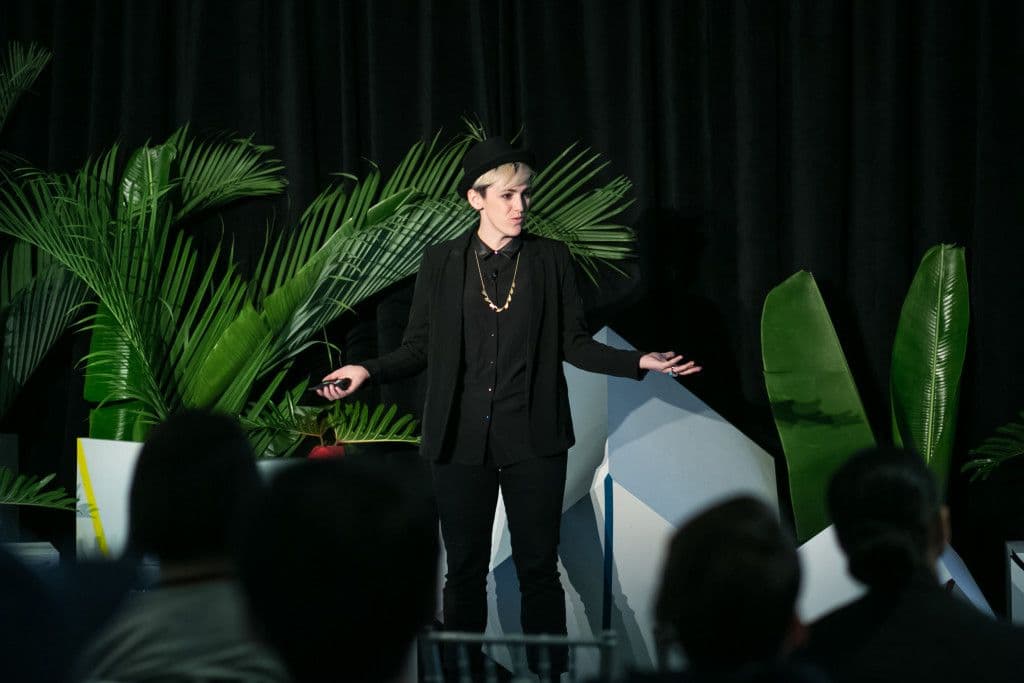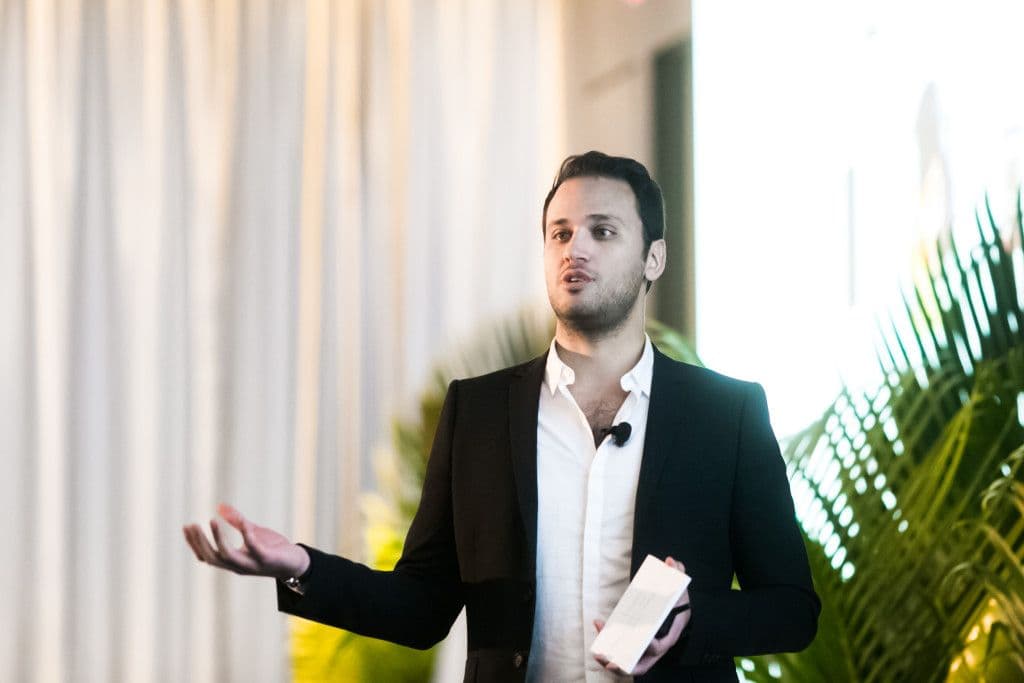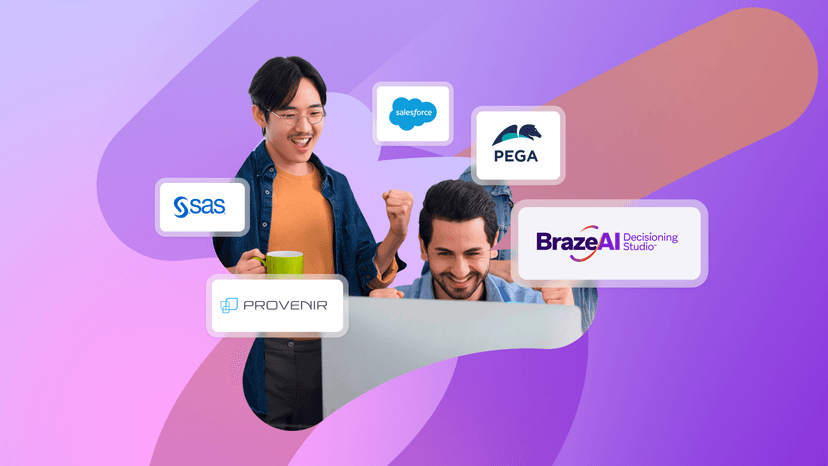Relationships, Marketing, Human Behavior, and GIFs: A Big Day at LTR
Published on November 06, 2015/Last edited on November 06, 2015/4 min read


Todd Grennan
Content Production Principal, Content Marketing at BrazeYesterday was quite a day.
From the moment the doors opened at 8:30 a.m. until that very last cocktail napkin was thrown away sometime around seven, LTR felt like a force of nature. Hundreds of people. Thousands of conversations. And views that made you feel thankful to be in New York City.

There were panels and interviews, speeches and presentations. Speakers covered the ins-and-outs of human behavior, looking at the way that our emotions, habits, culture, and relationships impact not just the customer/brand connection, but all facets of our lives.
A video posted by Appboy (@appboylife) on Nov 5, 2015 at 1:51pm PST
Author and columnist Gary Belsky looked at what jam, Israeli fighter pilots, microwaves, and more can teach us about the way people make decisions and see our world. Relationship expert Tamara McCleary went deep into brand/customer relationships and what people really value. Giphy’s Julie Logan made a case for GIFs and their value as a communications medium. And speaker after speaker thrilled us with their insights, knowledge, and enthusiasm.
So what did we learn?

Julie Logan, director of brand strategy at Giphy
Durable relationships are based on deep understanding and effective communication
A strong relationship can’t be one-sided. You need to understand where the other person is coming from and be able to have a real dialogue about things that matter. The same is true for customers and brands. Marketers need to understand their audience’s needs and wants, then make sure that their messaging and the customer experience they create (whether on mobile, desktop, or in person) communicates how they can help address those needs. Customers have to be able to make their feelings known, whether through their engagement (or lack thereof) with a brand or their explicit feedback—otherwise, that conversation is really just the brand’s voice talking.

Author and columnist Gary Belsky
Emotion and instinct drive more human behavior than most of us realize
While we all think that we’re rational actors making thoughtful decisions about the things we buy and products we use, there’s usually more going on. Loss aversion has been shown to be a more powerful motivator than potential gain and we’re often paralyzed when it comes to making decisions because we’re simply being offered too many choices. Marketers who keep their message simple, give their audience a small number of options, and are thoughtful about customer emotions are better positioned to succeed.

Mobile is bringing intimacy back to customer/brand relationships—and data makes it possible
Mobile is still new, but one thing customers really love about it is how it brings back something old. People are looking for today’s brands to provide the kind of personalization and thoughtfulness that our grandparents used to get from the neighborhood butcher or baker and mobile makes it possible to achieve that on a global scale for the first time. But that achievement is built on customer data and people get uncomfortable when brands use that data in clumsy ways. Everyone wants that personal touch, but nobody wants to feel like they’re being monitored. Striking a balance is one of the big struggles for marketers going forward.

Mark Ghermezian, co-founder and CEO of Appboy
Great marketing is about telling the best possible story for your customers and about your brand
Brands often fixate on pricing or product issues when it comes to customer retention. But research suggests that customers who don’t feel a connection with a brand are actually the most likely to switch to a competitor. Marketers need to be able to convey their own brand’s story and understand how it intersects with each customer’s personal story in order to build the kind of durable relationships that support their success over the long haul.
Relationship Infrastructure @ LTR by Appboy from Appboy
Tamara McCleary’s presentation at LTR
While the [first of many!] LTR conference may be over, the insights and conversations that were shared there are just the beginning of an ongoing dialogue. Look out for pieces over the coming weeks that will delve deeper into human relationships, psychology, and the impact that mobile and emerging technologies will have on the future of marketing. And check out our new data report on the impact of consistent engagement on retention.
Related Tags
Be Absolutely Engaging.™
Sign up for regular updates from Braze.
Related Content
 Article16 min read
Article16 min readChoosing the best AI decisioning platforms for 2026 (across industries)
February 12, 2026 Article3 min read
Article3 min read2.4+ billion sends, zero fumbles: How Braze supports leading brands during the big game
February 09, 2026 Article4 min read
Article4 min readBeyond Predictions: Why Your Personalization Strategy Needs an AI Decisioning Agent
February 09, 2026